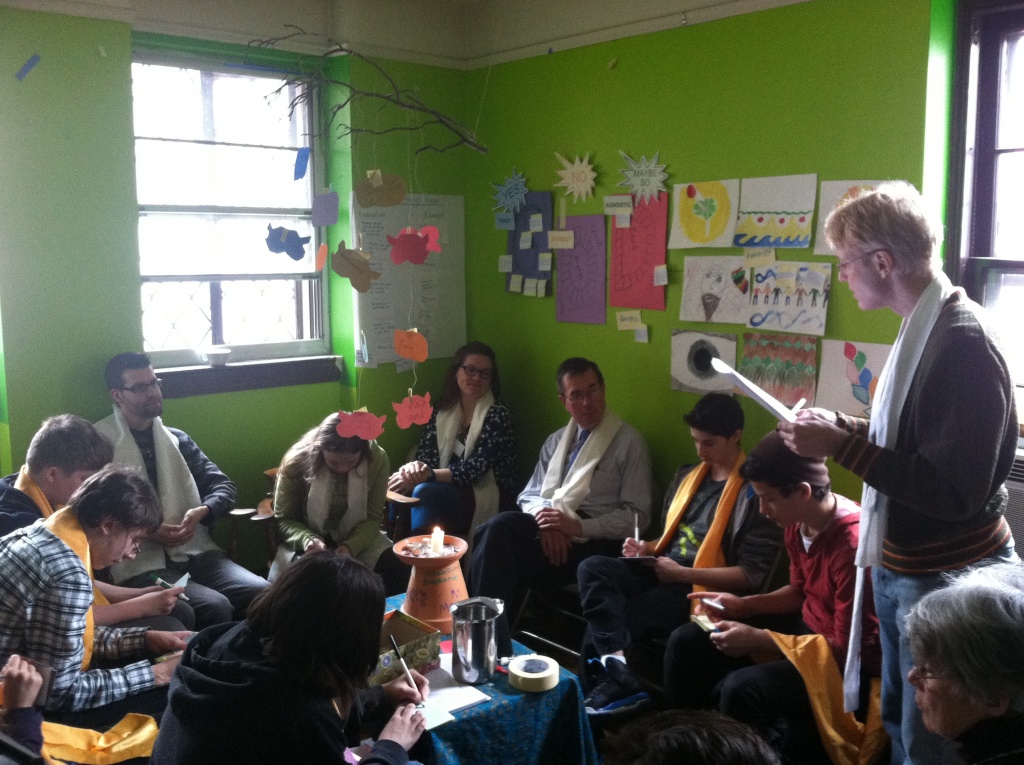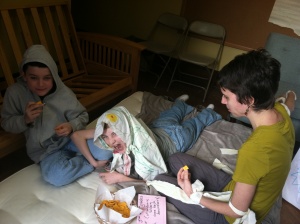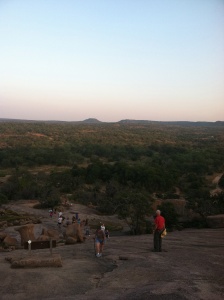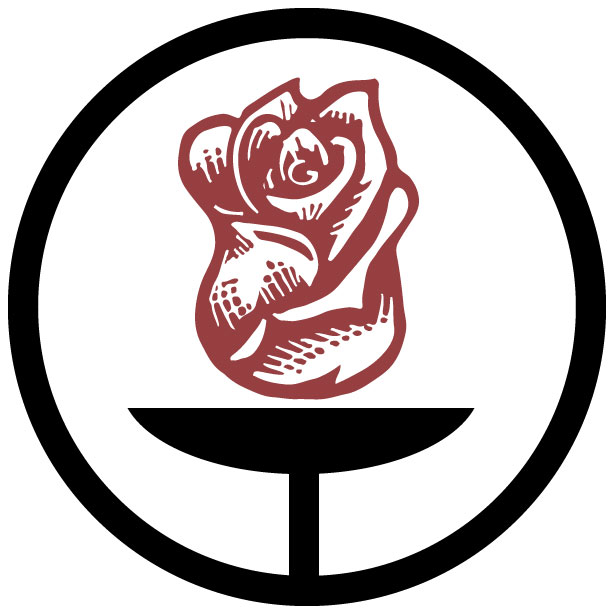
Photo taken by Rose during a mentor/mentee session of the Coming of Age program she directed at the First Unitarian Society of Brooklyn.
Willing to Be Changed By What We’ve Started
My experience in leading Religious Education has shown me that mentorship and trust of children and youth create thoughtful and lively young people who are capable of leading us into the future. When I was the coordinator for the RE program between DREs at First Unitarian in Brooklyn, NY, I saw a six-year-old take the hand of a new-comer in his class, teaching me what it looks like to be a loving member of a beloved community. When I was RE teacher for 5-6 grade Bible studies at First Unitarian in Brooklyn, four 10-year-old boys interpreted the Bible for me with hilarity, wisdom, and wit. When I was Youth Director of Wildflower Church in Austin, TX, a budding youth group worked together to plan a two-day wilderness adventure, showing me the perfect balance of worship, games, workshops, and covenant building. When I was the Director of the Coming of Age program at First Unitarian in Brooklyn, the beautifully fierce faith statements of shy and awkward youth inspired me to preach.
Educating anyone of any age is sacred work, but children and youth hold the future of our movement. We have a wonderful opportunity in RE to create a space in which they can explore a life of wonder, growth, relationship, belonging, and accountability. The things we teach our children and youth will be the very ideals they lead with when they join the beloved community as young adults, when they serve on boards, when they become ministers, as they usher Unitarian Universalism into the future. I am willing to be changed by what we’ve started; I am excited and hopeful and grateful for the young people I have met, for the opportunity to shape their thinking, and for the ways they have shaped mine.

And old photo: Rose’s first official Church job was as Youth Director at Wildflower Church in Austin, TX.

A photo taken by Rose of her 5th and 6th grade RE class at the First Unitarian Society of Brooklyn. The text for the week was Jacob’s wrestling with the Angel (Gen 32:22-31), so the class had a wrestling tournament. Photo captures a delicious mid-tournament snack break.
UU Camps and Conference Centers
I have spent over 10 years working with children and youth at UU camps and conference centers. I have worked at Camp Unistar in northern Minnesota, U-Bar-U in the hill country of Texas, and Rowe in western Massachusetts. I understand (from my own coming of age and my 10 years of leadership in these settings) the incredible importance of having “time out of time” at summer camp where like-minded and loving peers grow with you year after year. The health of children and youth is a litmus test for the wider community’s well-being, and I have watched the UU communities in Minnesota and Texas strengthen considerably as the youth bond to each other and come to feel deeply connected to Unitarian Universalism.
For the majority of my time at camps (5 years at Unistar in Minnesota and 5 years at U-Bar-U in Texas) I have worked with my father. Together we have served our movement as a family in a lovely, intentional way that quenches our need to be outside problem solving while using our organizational brains to create safe and meaningful programming, and to hire creative, healthy staff. Plus, who doesn’t love looking after gangly groups of children running through the woods singing UU hymns?

Photo from Camp Unistar, where Rose’s dad was the director for 10 years. Rose lived and worked on this island in northern Minnesota for all 10 of those summers.

Photo taken by Rose of her dad (in the red) overlooking campers at U-Bar-U climbing Enchanted Rock in the Hill Country of Texas.
